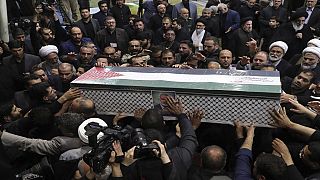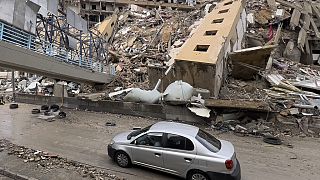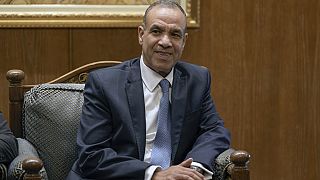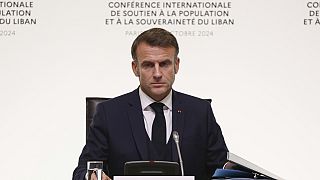Lebanon
Lebanon’s Iran-backed Hezbollah group on Thursday vowed there would be a "real" response to Israel’s killing of its top military commander.
Speaking at the funeral of Fuad Shukr who was killed in an airstrike in Beirut on Tuesday, Hezbollah’s leader Sayyed Hassan Nasrallah said the war against Israel had “entered a new phase”.
Lebanese health authorities said at least seven people, including two children, were killed in the Israeli strike.
“We are planning a real and well-calculated response, not merely a symbolic one,” Nasrallah said, adding that Israel had “crossed red lines” in Beirut, as well as in the Iranian capital.
Hamas’ political leader was killed in Tehran on Wednesday in an attack which Iran and the Palestinian militant group have blamed on Israel.
Nasrallah said the response would go beyond the scope of the daily border skirmishes between Hezbollah and Israeli forces that have been ongoing since the start of Israel’s war with Hamas.
“We are facing a big battle now, it is beyond a support front now. There is now a battle in Gaza, there is now a battle in south Lebanon, an open battle in Yemen, and even in Iraq because this is all happening at the same time,” he said.
“They’ve picked a fight with all of us,” Nasrallah said, referring to the Iran-backed network of armed groups that spans Lebanon, Syria, Iraq, Yemen, and Iraq.
Meanwhile in Tehran, Iran’s Supreme Leader Ayatollah Ali Khamenei led prayers for Haniyeh, having earlier threatened a “harsh punishment” against Israel for his death.
Haniyeh had been in Tehran to attend the inauguration of Iran’s new president. His remains are to be transferred to Qatar, where he was based, for burial on Friday.
Israel has not denied or confirmed responsibility for the killing of Haniyeh, but did say it had carried out Tuesday’s airstrike in Beirut that killed Shukr.
It said Shukr was behind a rocket attack days earlier that hit a soccer field in the Israeli-held Golan Heights, killing 12 children. Hezbollah denied being behind that strike.
The back-to-back killings have increased fears of an escalation into a wider war, leaving the region waiting to see how Iran and ally Hezbollah will respond.
International diplomats have been scrambling to avert a cycle of retaliation before it spirals into a greater war.
Since the Gaza war began in October last year, Hezbollah and Israel have traded fire almost daily across the border.
The exchanges have caused deaths and the evacuation of tens of thousands from their homes. But they have also stayed within limits.
Several times, strikes that appeared to cross red lines raised fears of an acceleration into full-fledged war, but outside diplomacy reined in the two sides.
Hezbollah faces strong pressure from Lebanon not to draw it into a repeat of its 2006 war with Israel, which wreaked heavy death and destruction in the country.
Israel and Iran risked plunging into war earlier this year when Israel hit Iran’s embassy in Damascus in April.
Iran retaliated, and Israel countered in an unprecedented exchange of strikes on each other’s soil, but international efforts succeeded in containing that cycle before it spun out of control.











02:20
Horror and destruction of Israel's war illustrated by Gaza artists
Go to video
Gaza war: What's next after new US veto on ceasefire draft resolution?
Go to video
US vetoes UN resolution demanding a cease-fire in Gaza for 4th time
Go to video
Fresh airstrikes hit Beirut, as Israel presses ahead with campaign against Hezbollah
01:45
UNRWA says nowhere is safe in Gaza, calls for hospitals, schools to be protected
01:34
Arab and Islamic leaders urge UN membership freeze for Israel